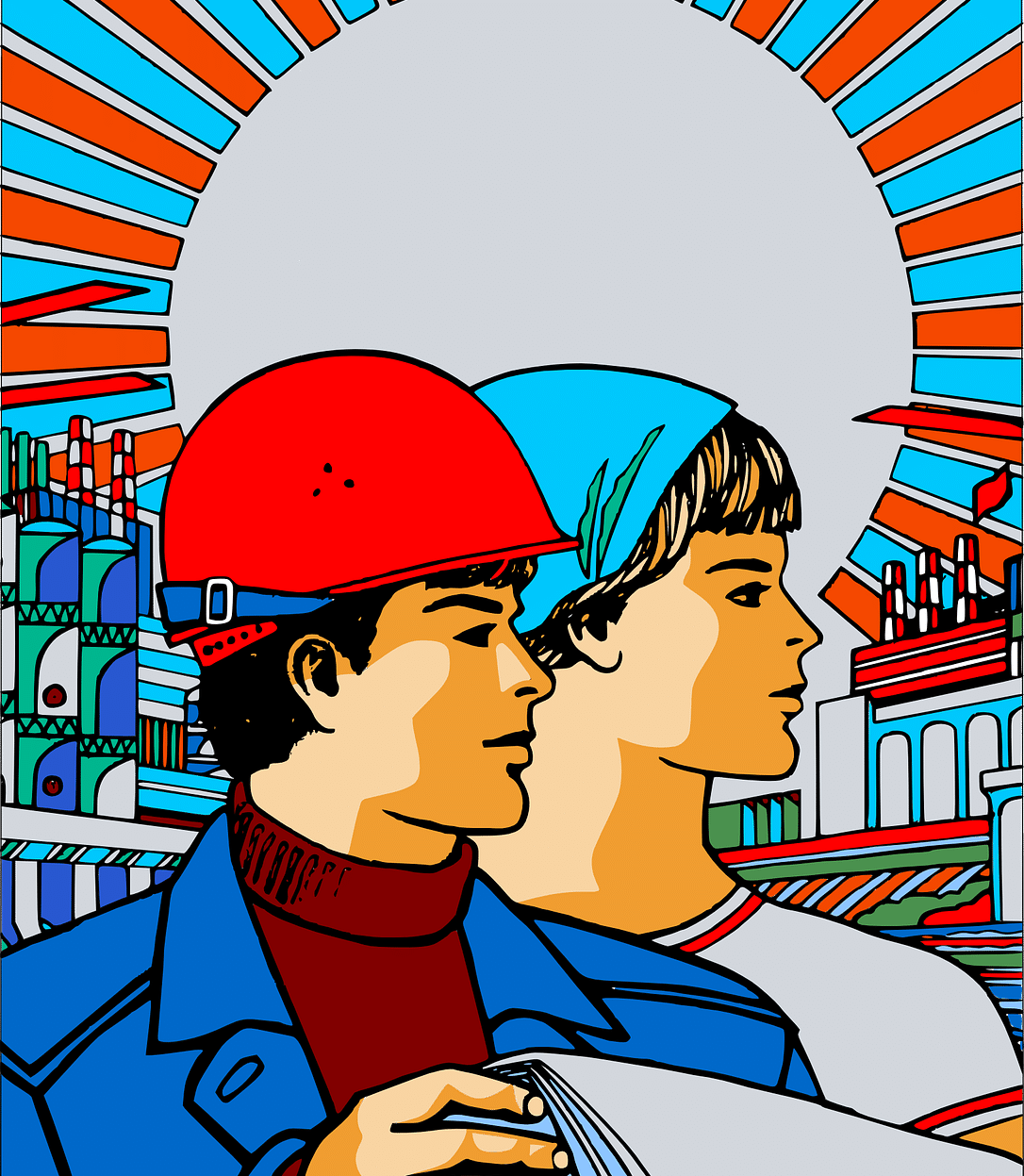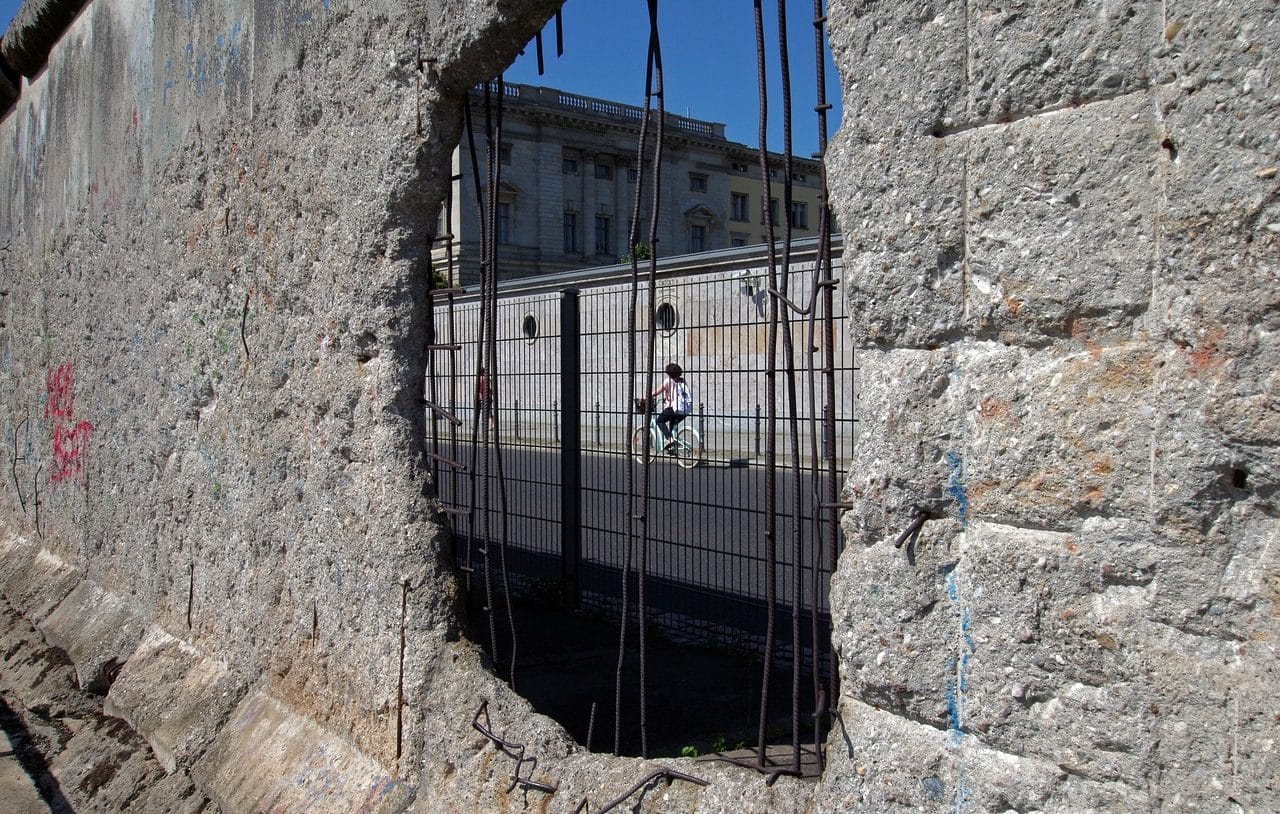
The collectivization of the means of production is one of the measures of communism.
Communism is a political movement that promotes the formation of a society without social classes , where the means of production are common property. This implies that private ownership of said media would not exist, which would bring power to the working class.
In its ultimate goal, communism seeks the abolition of the State : if there is no private ownership of the means of production, there is no exploitation. Therefore, state organization would not be necessary.
Characteristics of communism
The foundations of communism were developed by Karl Marx and Friedrich Engels at the end of the 19th century in books such as "Capital" . In the 20th century , the Russian revolutionary and Bolshevik leader Vladimir Lenin set out to put these theories into practice, based on his own interpretation.
The theoretical perspective developed by Marx is known as Marxism , while the ideology promoted by Lenin is mentioned as Leninism . The combination of both movements is called Marxism-Leninism . There is also talk of Stalinism (the regime imposed by Joseph Stalin ), Maoism (the postulates spread by Mao Zedong ) and Trotskyism (the ideas promoted by Leon Trotsky or Trotsky ) due to the impact that the thoughts of other communist leaders had.
The class struggle as the engine of history is one of the pillars of Marxism and communism. For Marx , a revolution driven by the working class is required to abolish social stratification. Once this objective is achieved, a transition stage arrives that is called the dictatorship of the proletariat .
Today communism contemplates coming to power through democratic means through the electoral proposal of the Communist Party , which does not propose the action of a revolutionary guerrilla as the main tool. Central planning and the planned economy remain pillars, although state ownership of the means of production can coexist with private property.
It must be considered that communism has received criticism from different sectors. There are those who consider that a classless society is impossible (some group will always hold power; in the case of communism, it would be the bureaucrats, which is often reported to have happened in Cuba with the regime headed first by Fidel Castro and then by Raúl Castro ). On the other hand, many believe that capitalism and its desire for profit is the only system that promotes economic development.

The People's Republic of China is governed by a communist regime.
The regime of Nicolae Ceausescu
Throughout history there have been various communist governments ; undoubtedly one of those that has been highlighted negatively for its genocidal policies and anti-constitutional programs was the regime of Nicolae Ceausescu , who ruled Romania (or Romania ) between 1945 and 1989 and was violently overthrown by a popular revolution ; It is worth mentioning that Romania was the only Eastern European country that managed to get rid of its leader through force.
A few decades later Ceausescu 's communism was classified as illegitimate and criminal ; Despite how obvious this statement may be, Romania was the first former member of the communist bloc to take this step and did so after an intense investigation carried out by historian Vladimir Tismineanu in which the crimes and abuses of the dictatorship were analyzed. .
During Ceausescu 's mandate, the most disadvantaged classes were the poor, who, condemned to hunger, cold and lack of health and education resources , suffered devastating annihilation. In addition, policies of extermination were implemented against all those who opposed the regime, torturing and murdering them indiscriminately.
The acceptance of the crimes by the current Romanian government is not, as many have believed, an anti-Romanian position, but rather the desire to clean up the past and condemn those who have behaved in an unconstitutional manner in order to move towards a more democratic real. It is worth mentioning that not long ago this country was accepted to be part of the European Union .

The fall of communism occurred with a series of revolutions in 1989.
Differences between communism and socialism
Although they are often used synonymously, it must be taken into account that communism and socialism are not the same.
While communism proposes radical measures for the expropriation of individual property to be exploited by the State and its consequences are real; Socialism is a doctrine, it does not propose effective measures of change but rather an economic plan that is based on democratic possession and collective administrative control of production systems, together with the control of political structures by citizens.
Both ideologies are based on a series of writings and studies developed throughout history by various thinkers; In this way, communism is based on the ideas proposed by Marx and Engels, as we already mentioned, while socialism is based on those expressed by Henri de Saint-Simon and Carlos Fourier (although these also had Marxist ideas).
It is worth mentioning that although many claim that socialism is the previous phase to communism, some political currents categorically separate them, placing the socialist State on a limit closer to democracy and communism , close to authoritarian and unconstitutional regimes.
